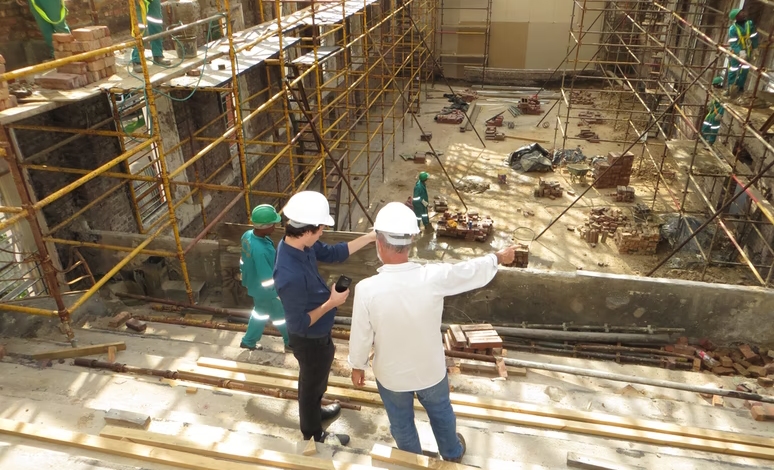Construction Law: The Importance Of Contract Preparation And Risk Management

The first step to a successful construction project is a well-written contract. If done correctly, a good contract can also help to protect your client from the risks inherent in the construction process.
Importance Of A Good Contract
Before any construction begins, the first step is to create a formal written contract that details the scope of work to be completed, the materials to be used, the time to be used, the financial obligations to be made, etc. This is an essential part of any construction project. If the builder fails to complete the build correctly, he may be held liable for any issues with the job. Nevertheless, drafting a water-tight contract is far more challenging than it first seems. As a result, many people will seek the help of law firms that specialize in construction law to prepare a good contract. However, because construction law varies from country to country and by region in some cases, you must choose a law firm that understands the nuances of your jurisdiction.
Consequently, you should be aware of how to choose a lawyer you can trust when searching for one. For example, if you are in the USA, you will need to see which jurisdiction they operate. Furthermore, many countries devolve specific laws on a state-by-state basis, which further complicates matters. If you live in Australia, you might need to search for a competent construction lawyer on the Gold Coast if you are in that area because laws surrounding this area may be different to those on the other side of the country in Perth and so on. Nonetheless, the main point is to look for a lawyer capable of handling your specific situation and familiar with your area’s local laws and norms.
Importance Of Preparation
The contract is an important document that defines both the parties’ rights and responsibilities to a deal. It’s one of the most crucial documents that can go wrong, so you must have it prepared ahead of time. Contract preparation is not just about writing; it also includes:
- Drafting: Drafting a contract is a precursor to the legal agreement signed by the parties involved. It is an attempt to ascertain what the parties have agreed upon.
- Negotiating: During the drafting process, there will be negotiations on everything from timelines to finances.
- Reviewing: All parties will need to check the final drafts and add any further input they deem necessary.
- Editing: If any changes need to be made, they should be done far in advance and through draft iterations.
- Signing: This is the final stage, and by now, all parties should be satisfied with the contents of the contract. Once everyone involved has signed, it is challenging to go back to the drawing board, so you should ensure everything is in order before this stage.
The goal should be to have a well-written contract with no legal loopholes or ambiguities.
What Are The Benefits Of A Water-Tight Construction Contract?
Contract preparation can be a daunting task for even the most seasoned professionals. It can be challenging to prepare for all potential risks and contingencies with such a high number of factors to consider and possible scenarios to predict. Nonetheless, as previously discussed, a good contract can reduce the chance of things going wrong. Some of the benefits include:
- Communication: Taking time to negotiate and prepare a contract facilitates communication.
- Managing expectations: A contract can help establish responsible expectations between the owner and client.
- Providing Accurate Information & Preventing Disputes: A contract offers the best documentation of the understandings and agreements between the parties and can be used to prevent future disputes.
- Flexibility: An effective contract should allow for years of future use and adaptation.
- Conflict resolution: Well-written contracts allow aggrieved parties to resolve issues amicably and within the timeline of construction.
What Should A Good Construction Contract Contain?
No matter the size of the project, certain things should always be included in all building contracts.
Contact Information
This part is self-explanatory and should include the contact information for both parties, the client and the contractor. This information should be up to date and updated as things change.
Project Description And Title
Your construction project will have a title that can simply be the work to be completed, e.g., “Bathroom Renovation.” It should also include a detailed explanation of what you expect the contractor to do. In order to reduce future issues, the proposal should be as detailed as possible. In addition to a project description, you should include any licenses or permits needed to complete the project successfully. If your contractor hasn’t applied for the necessary permits before the work begins, this could be a point of contention.
Completion Date And Timeline
Make sure that it is clear how long it is expected the work will take and an estimated date of completion. The contract start date, estimated completion date, and the date the contract becomes effective should all be included. In addition, the agreement should provide explicit provisions for what happens if the work is not completed by the estimated completion date.
Estimate Of Costs And Schedule Of Payments
You should clearly outline the cost estimate and payment schedule for the project in your construction contract. You should also include deposits and the frequency of payments.
Stop Work Clause And Stop Payment Clause
Either party can implement a stop clause if they perceive the other party is not meeting their obligations. This might be late payments for the contractor or poor workmanship for the client. Either way, it must be clear what the resolution process is.
Arrangements Relating To Order Changes
Order changes are part and parcel of construction projects, but they can cause headaches if not planned. Changing a contract requires both parties to sign a written document with the intent to deviate, alter or add to it. By including this agreement, you will have the ability to easily change a project’s scope or the terms of your contract if necessary.
By having a contract, you have a written record of your business agreements and an agreement that sets out the rights and responsibilities of all parties. The preparation process will also reveal any potential conflict or misunderstanding areas, which each party can address in advance. In essence, it provides peace of mind for all parties involved.






